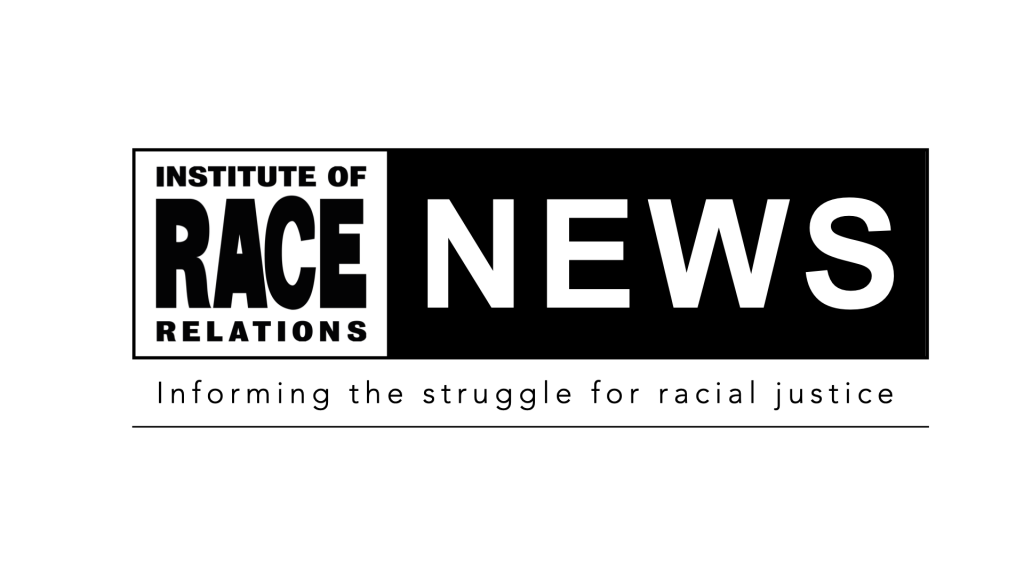IRR News 20 June – 4 July 2023
It’s impossible to watch the events unfolding in France, in response to the shooting dead of Nahel Merzouk by police following a traffic stop, without remembering 4 August 2011, and the hard stop and police killing of Mark Duggan in Tottenham. It was the police’s disastrous treatment of Mark Duggan’s family and supporters at Tottenham police station on 6 August 2011 that provided the trigger for the most widespread social unrest seen in the UK for a generation. Likewise, it was the teargassing of the marche blanche organised by a Truth and Justice Committee and Nahel Merzouk’s family, in Nanterre, west of Paris, that transformed initial disturbances into mass insurrection in France.
There are other similarities in terms of how criminal justice systems are responding, with fast-track justice. To date, over 3,000 people have been arrested in France (most under the age of 17 and 60% without previous convictions). Just like in the UK in 2011, French defence lawyers, given just 30 minutes to prepare, are having to contend with extended sittings and summary justice.
There are, of course, differences in UK and French policing cultures, not least that French police, and not just specialist squads, carry firearms. The police’s initial testimony that the shooting of Nahel was an act of legitimate self-defence under the ‘refusal to comply’ laws (which allow police to open fire on vehicles that evade traffic stops if there is a threat to life) was quickly destroyed when a video of his death was posted online, necessitating the immediate arrest of the police officer involved.
Another thing both countries do have in common is the backlash from rank-and-file police officers against any attempt to root out institutional racism or prosecute armed police officers who shoot dead Black men or men of Arab heritage. (See the case of Jermaine Baker, shot dead, as Tottenham Rights reminds us, by an officer from the same CO19 unit that killed Mark Duggan and Chris Kaba.) In the UK, police are not supposed to join a trade union, with police officers below the rank of superintendent represented by the Police Federation. In France, rank-and-file militancy is out in the open. In 2020, overtly right-wing police trade unions, demonstrated in uniform (some throwing down their handcuffs) when the government attempted to ban the chokehold following the death of delivery driver Cédric Chouviatwho had allegedly cried out seven times ‘I’m suffocating’ while in the hold that led to his death. Now, in an extraordinary move, two French trade unions issued a communique which described rioters as ‘savage hordes’ and ‘vermin’ and put elected politicians on notice that they will revolt if the government does not follow its plan to restore order.
As ‘Thin Blue Line’ insignia again makes the news this week, with Met Commissioner Sir Mark Rowley confirming that officers are not permitted to wear the badge on uniforms, it is vital that we understand that police trade unions and pressure groups across Europe are acting as political movements to block attempts to dismantle institutional racism, confront extremism or ban lethal weaponry. You can find out more information about the extraordinary political influence of rank-and-file police officers in Liz Fekete’s Race & Class article, Racism, radicalisation and Europe’s ‘Thin Blue Line’.
This is the last IRR News before our summer break. Alongside our regular Calendar of Racism and Resistance which includes a summary of the unrest across France, we are excited to release a very special edition of Race & Class. New Circuits of Anti-racism includes articles inspired and derived from our IRR50 conference of the same name, held in October 2022 at King’s College London. Guest edited by IRR Chair John Narayan, this special issue brings together key contributions from that gathering – and beyond – highlighting debates on abolition, reparations, internationalism, racial capitalism and the enduring influence of A. Sivanandan. Featuring articles by keynote speakers Barbara Ransby and Derecka Purnell and other conference guests, the edition also features a timely intervention by Adam Elliott-Cooper, who draws the links between today’s abolitionist turn and the Black Power and anti-colonial politics of the twentieth century.

